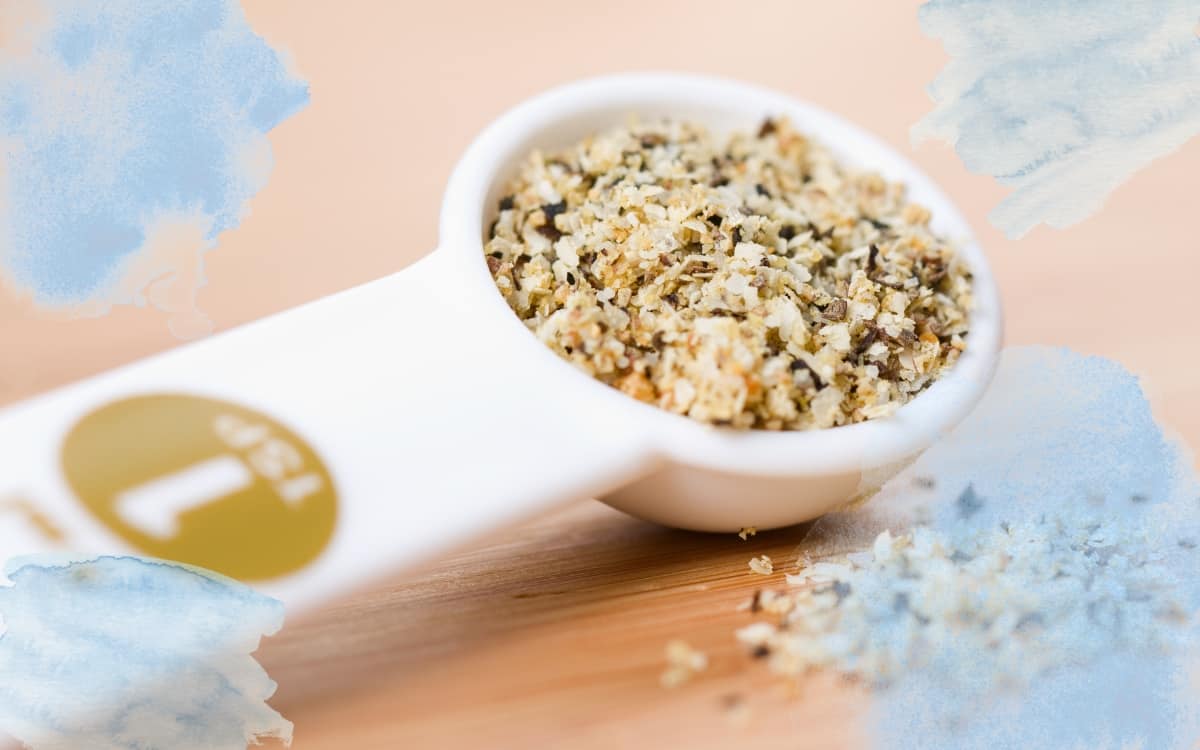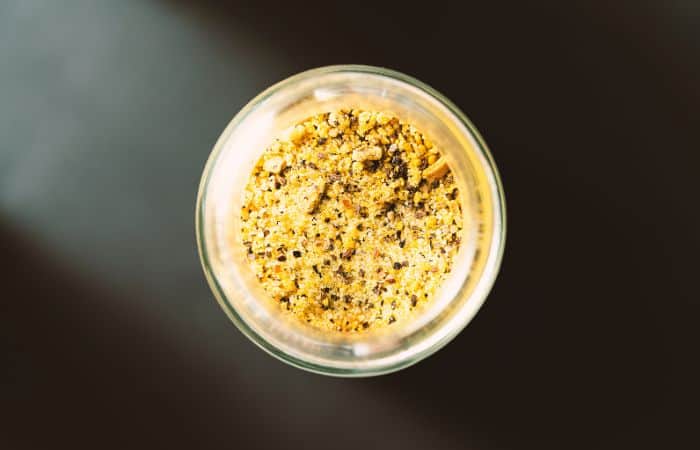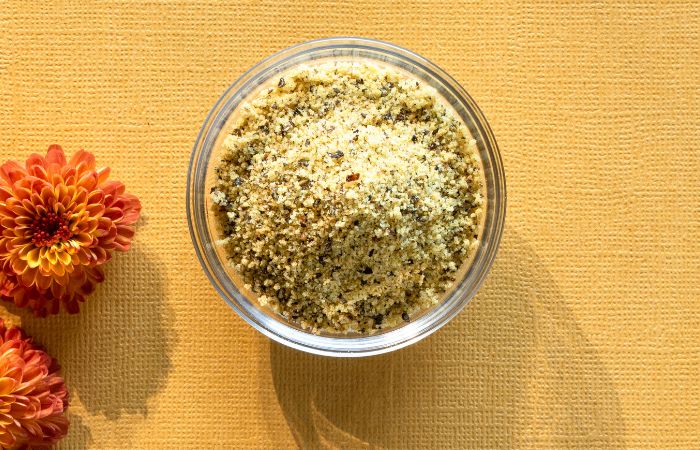Lemon pepper is a popular seasoning that has been used in cooking for many years. It is a blend of lemon zest and cracked black pepper that adds a zesty, tangy flavor to dishes. But is lemon pepper good for you? In this article, we will explore the nutritional information, potential health benefits, and risks of consuming lemon pepper.

We will also provide tips on how to use lemon pepper in your cooking and offer alternatives and recipes for making homemade lemon pepper. So, whether you are a seasoned cook or a health-conscious individual looking to spice up your meals, keep reading to learn everything you need to know about lemon pepper.
Nutritional Information of Lemon Pepper
Lemon pepper is a low-calorie seasoning that contains only a small amount of fat and carbohydrates. One teaspoon of lemon pepper typically contains around 3-5 calories, 0.2-0.3 grams of fat, and 0.5-1 gram of carbohydrates. Lemon pepper is also a good source of vitamins and minerals, including vitamin C, vitamin E, and potassium.
However, it is important to note that the nutritional content of lemon pepper may vary depending on the brand and the ingredients used to make it. Additionally, some store-bought lemon pepper blends may contain added salt, which can increase the sodium content.
Therefore, it is always a good idea to check the nutrition label and ingredient list before using lemon pepper in your cooking.
Health Benefits of Lemon Pepper
Lemon pepper has several potential health benefits due to its combination of lemon zest and black pepper. Here are some of the potential health benefits of consuming lemon pepper:
Anti-Inflammatory Properties
Both lemon and black pepper have anti-inflammatory properties, which means that consuming lemon pepper may help reduce inflammation in the body.
Aids Digestion
Lemon pepper has been used in traditional medicine to aid digestion. The lemon zest in lemon pepper is thought to stimulate the production of digestive juices, while the black pepper may help prevent gas and bloating.
May Help Reduce Blood Pressure
Some studies suggest that black pepper may help reduce blood pressure by improving blood vessel function.
May Promote Weight Loss
Lemon pepper’s low calorie and fat content, combined with its flavorful taste, can make it a great addition to a weight loss diet. Additionally, black pepper has been shown to help increase metabolism, which can aid in weight loss.
Other Potential Health Benefits
Lemon pepper may have other potential health benefits, such as improving immunity, promoting skin health, and reducing the risk of certain diseases. However, more research is needed to confirm these benefits.
Overall, while lemon pepper is not a miracle cure, it can be a healthy addition to a well-rounded diet.

Potential Risks of Lemon Pepper
While lemon pepper has several potential health benefits, there are also some potential risks associated with consuming it. Here are some of the potential risks of consuming lemon pepper:
High Sodium Content
Some store-bought lemon pepper blends may contain added salt, which can increase the sodium content. Consuming too much sodium can lead to high blood pressure, heart disease, and other health issues.
May Trigger Migraines
Some people may be sensitive to the citrus flavor in lemon pepper and may experience migraines as a result of consuming it.
Potential Risks Associated with Consuming Too Much Lemon Pepper
While there is no specific recommended dosage for lemon pepper, consuming large amounts may lead to digestive issues, such as heartburn or acid reflux.
It is important to note that the potential risks associated with consuming lemon pepper are relatively minor and can be avoided by consuming it in moderation and choosing high-quality, low-sodium blends. If you experience any negative symptoms after consuming lemon pepper, such as headaches or digestive issues, it may be best to avoid it in the future or consult with a healthcare provider.
How Can You Incorporate Lemon Pepper Seasoning Into Your Diet in A Healthy Way?
There are many ways to incorporate lemon pepper seasoning into your diet in a healthy way. Here are some ideas:
Use It as A Marinade
Mix lemon pepper seasoning with olive oil and use it as a marinade for chicken, fish, or vegetables. Let the flavors infuse for at least 30 minutes before grilling, baking, or roasting.
Sprinkle It on Vegetables
Lemon pepper seasoning can add flavor to roasted or sautéed vegetables, such as broccoli, asparagus, or zucchini. Toss the vegetables in a little olive oil and sprinkle with lemon pepper seasoning before cooking.
Use It as A Seasoning for Grains
Add a dash of lemon pepper seasoning to cooked quinoa, brown rice, or couscous for a flavorful side dish.
Sprinkle It on Salads
Add a pinch of lemon pepper seasoning to your favorite salad dressing or sprinkle it directly on your salad for a zesty twist.
Mix It Into Dips and Spreads
Mix lemon pepper seasoning into hummus, tzatziki, or avocado dip for a flavorful snack.

Use It as A Rub
Rub lemon pepper seasoning onto steak, pork chops, or tofu before grilling or searing for a flavorful crust.
Remember to use lemon pepper seasoning in moderation and in combination with a balanced diet and regular exercise. Enjoy the delicious flavor and health benefits it can provide!
Are There Any Potential Allergic Reactions from Consuming Lemon Pepper Seasoning?
Although it is rare, some people may have an allergic reaction to lemon pepper seasoning. This may be due to an allergy to one or more of the ingredients, such as lemon, black pepper, or other spices.
Symptoms of an allergic reaction to lemon pepper seasoning can vary, but may include:
- Hives, rash, or itching
- Swelling of the face, lips, tongue, or throat
- Difficulty breathing
- Abdominal pain, nausea, or vomiting
If you suspect that you may be allergic to lemon pepper seasoning, it is important to seek medical attention right away. Your doctor may recommend an allergy test to determine the specific allergen and provide you with appropriate treatment options.
In general, it is a good idea to read the label carefully and avoid consuming any foods or seasonings that contain ingredients you are allergic to. If you have a known allergy to lemon or black pepper, it is best to avoid lemon pepper seasoning altogether.
What Are Some Common Misconceptions About the Health Benefits of Lemon Pepper Seasoning?
There are several common misconceptions about the health benefits of lemon pepper seasoning that can be misleading. Here are a few:
Lemon Pepper Seasoning Is a Natural Remedy for Weight Loss
While lemon pepper seasoning can be a low-calorie way to add flavor to your meals, it is not a magic weight loss solution. Eating a balanced diet and getting regular exercise are key for achieving and maintaining a healthy weight.
Lemon Pepper Seasoning Can Cure Illnesses
While lemon and black pepper are both known for their health benefits, they cannot cure illnesses on their own. It is important to seek medical attention and follow your doctor’s advice for any health concerns.
Lemon Pepper Seasoning Is a Good Source of Vitamin C
While lemon zest does contain some vitamin C, the amount in a typical serving of lemon pepper seasoning is relatively small. You would need to consume a large amount of seasoning to get a significant amount of vitamin C, which could also increase your sodium intake.

All Lemon Pepper Seasonings Are Created Equal
The nutritional content and quality of lemon pepper seasonings can vary depending on the brand and ingredients used. It is important to read the label and choose a high-quality blend that is low in sodium and free from artificial additives.
By understanding the facts about lemon pepper seasoning, you can make informed decisions about incorporating it into your diet.
Is There a Difference in The Health Benefits Between Homemade and Store-Bought Lemon Pepper Seasoning?
Generally, the health benefits of homemade and store-bought lemon pepper are similar, as they both contain lemon zest and black pepper. However, there may be some differences in the nutritional content and quality of the ingredients depending on the brand of store-bought seasoning and the freshness of the ingredients used in homemade lemon pepper.
Store-bought lemon pepper blends may contain added salt, preservatives, or other ingredients that can affect their nutritional content. It is important to read the label and choose a high-quality blend that is low in sodium and free from artificial additives.
Making homemade lemon pepper allows you to control the ingredients and sodium content, which can be beneficial for those with dietary restrictions or health concerns. Using fresh, high-quality ingredients can also provide a more vibrant flavor and aroma than store-bought blends.
Overall, both homemade and store-bought lemon pepper can be a healthy addition to your diet when consumed in moderation and in combination with a balanced diet and regular exercise.




